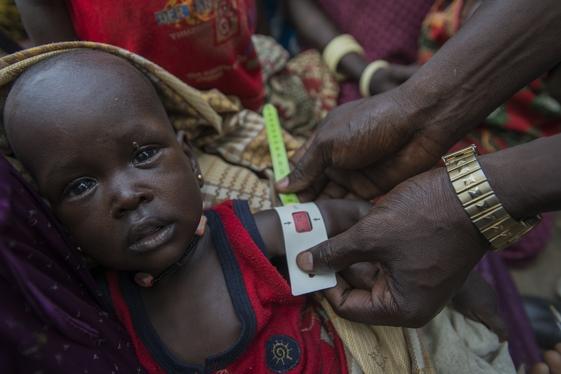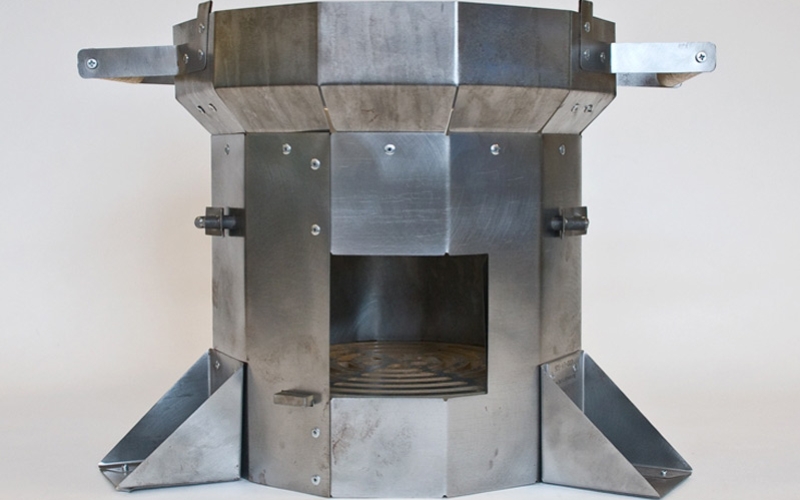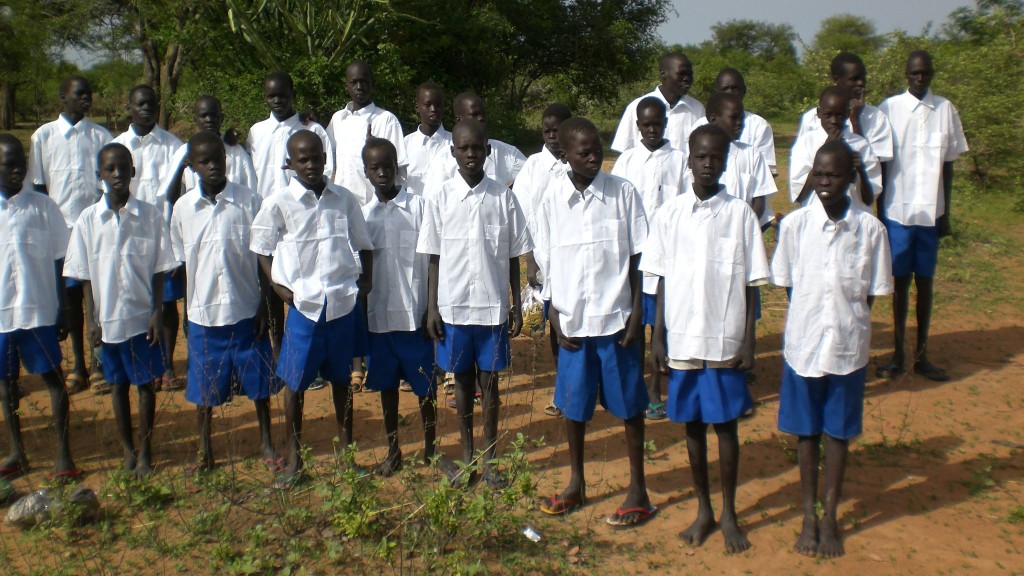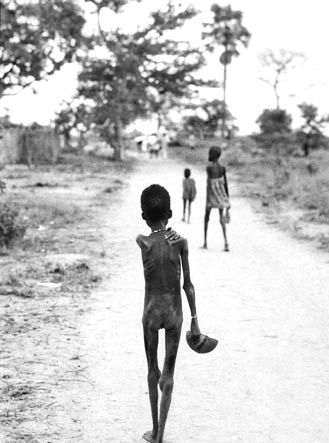Sudan Aid Fund, July 2015
Eric Reeves
I established the Sudan Aid Fund in 2006 through the Community Foundation of Western Massachusetts in Springfield, Massachusetts (which enjoys 501/c/3 tax status) as a means of providing funds for the most urgent humanitarian assistance projects in Darfur, eastern Chad, and the various regions of South Sudan that are experiencing extreme violence and displacement—and as a consequence are enduring severe deprivation, including extremely high rates of malnutrition. Recent ethnic violence has been enormously destructive, displacing more than 1.5 million people and creating vastly greater food insecurity for millions more people throughout South Sudan. The designation of contributions from the Fund is determined entirely by where need is greatest in war-torn regions, and where particular projects can be maximally effective.
Malnourished child being assessed via a MUAC test (“Middle Upper Arm Circumference”)
I’ve worked full-time on Sudan as researcher, analyst, and advocate for over sixteen years now, have traveled to Sudan, and—aided by a wide range of contacts—feel as though I have an especially good sense of not only the most urgent needs within the country, but which organizations are working most effectively there. Changing circumstances and opportunities govern the timing and size of contributions in what I see as a plan of strategic giving. Oxfam USA, Save the Children, the International Rescue Committee, Physicians for Human Rights, and the Marol Academy (Warrap State, South Sudan) have to date been the primary beneficiaries of contributions from the Sudan Aid Fund. In several cases, these contributions have been boosted in their effect by matching gifts.
I meet and communicate regularly with the most informed program officers in several of these organizations, and have cultivated relationships with a range of UN personnel working on Darfur. I communicate by various means with others working on the ground in Sudan (including journalists) and those who have recently returned from the region (such communication is mainly confidential because of threats from the Khartoum regime). I also communicate regularly with a number of key figures in the Darfuri diaspora, including many who continue to monitor the situation closely through family, friends, and traditional leaders on the ground. I have numerous, longstanding, and highly informed contacts in South Sudan as well. From the standpoint of supporting maximally effective humanitarian assistance to Sudan, I believe I have a particularly useful expertise.
The Sudan Aid Fund was, for example, one of the first to respond to Oxfam’s 2008 request for aid in providing newly developed and highly efficient cooking stoves in camps for displaced persons in North Darfur. A relatively substantial contribution made possible an early undertaking of this important project (which has created much needed local employment in the actual assembly of the stoves), and today far less wood is consumed in areas where there has already been immense and environmentally threatening deforestation. Most importantly, women and girls have to leave the camp areas much less often to collect what wood is needed, sparing them the harrowing threat of sexual assault by roving militias.
Oxfam’s remarkably efficient wood stove, for use in Darfur (see story at http://goo.gl/gPpfCE)
In South Sudan (Warrap) the Marol Academy, run by my good friend Jok Madut Jok (who was born in the region) now has over 600 students (mostly girls) and serves as a model of what can be achieved in the war-ravaged south. And those who know the people of Sudan and South Sudan understand that education is the most highly prized of all assistance and development projects, second only to food security.
Boys at Marol Academy; they are a minority, as most students are girls
Tragically, food security in southern Sudan/South Sudan has also deteriorated badly among the many people displaced and in refugee camps along the North/South border—people fleeing from Khartoum’s campaign of extermination in the Nuba Mountains and Blue Nile. Violence in Abyei in 2008 and again in 2011 has greatly exacerbated the difficulties, and tensions are high again. Here’s another example of the specificity of contributions from the Sudan Aid Fund—support for Mercy Corps for their work in the Abyei enclave along the north/south border.
When Abyei was the victim of extremely violent aggression by Khartoum’s military forces and militia proxies in May 2008, Mercy Corps was the only major humanitarian organization in a position to provide substantial food aid. The entire population of Abyei town—some 80,000 civilians—had been forced to flee, many dying in flight; without the emergency assistance from Mercy Corps, many more would have died in makeshift settling points. Sadly, various reports from the region make clear that immediate financial support remains urgently required for those who have been displaced from Abyei in even greater numbers during Khartoum’s May 2011 assault, and the Sudan Aid Fund has again contributed substantially and in a timely manner.
Most tragically, South Sudan is now at war with itself following the political events and deep rupture in Juba in December 2013. There is tremendous human displacement and acute need for food supplies to those who have been displaced or are unable to plant crops. The increasingly fragmented nature of the violence, typically with a vicious ethnic inflection, has made a near-term solution unlikely; humanitarian assistance is desperately need to fend off the famine that looms so ominously as a possibility. Money from the Sudan Aid Fund goes to several key humanitarian organizations working in South Sudan.
The risk of famine in South Sudan is terrifyingly great
These are the sorts of contributions that I hope to continue to be able to make with further assistance to the Sudan Aid Fund. There is no intention on my part to create a long-term philanthropic vehicle, or to build any sort of endowment; contributions are in fact presently funding projects at a rate greater than can be sustained for more than a year or two. My guiding principle is that wherever and whenever present human suffering in Sudan can be mitigated by financial support for a particular humanitarian project, there is no justification for waiting. (I include here a general listing of these projects and the size of the grants.)
I am deeply grateful for all contributions to the Sudan Aid Fund. They have made and will continue to make a tremendous difference in the lives of many Sudanese. I presume to thank you on their behalf as well.
The Sudan Aid Fund is partially supported by sales of my woodturnings | https://www.etsy.com/shop/EricReevesWoodturner/
***********************
Summary of Grants Awarded from 2006 – April 2014 from the Sudan Aid Fund at the Community Foundation of Western Massachusetts
International Rescue Committee | 24 grants supporting humanitarian assistance projects in Darfur and eastern Chad | $416,000
Save the Children/US | 20 grants supporting humanitarian assistance projects in Darfur | $294,000
Oxfam America | 14 grants funding water & sanitation projects and the distribution of highly efficient cooking stoves in Darfur | $169,000
Physicians for Human Rights | 9 grants supporting the investigation & treatment of sexual violence and the documentation of war crimes in Darfur and eastern Chad | 135,500
Mercy Corps | 3 grants for the provision of emergency food assistance in southern Sudan | $40,000
Schools for Sudan | 4 grants to build & operate schools in southern Sudan, including the Marol Academy, which is educating more than 600 students, 60 percent of them girls | $55,200
Action Against Hunger/US | 4 grants funding nutrition assistance in southern Sudan | $41,000
Doctors Without Borders | 2 grants supporting emergency medical care in Darfur | $35,000
Catholic Relief Services | 2 grant supporting humanitarian assistance in border area of northern Uganda/southern Sudan and to assist Southerners returning from the north | $35,000
Sudan Textbook Project at the Rift Valley Institute | 1 grant to support the production of textbooks for schools in southern Sudan | $25,000
U.S. Committee for Refugees and Immigrants | 5 grants supporting resettlement and legal assistance for Sudanese refugees | $25,000
International Refugee Rights Initiative | 1 grant supporting domestic Sudanese humanitarian assistance in Darfur | $10,000
International Center for Journalists | 1 grant supporting the work of Radio Dabanga in reporting on Darfur | $10,000
Robert F. Kennedy Center for Justice & Human Rights | 1 grant supporting Darfuri voices in the diaspora | $5,000
Kush World | 1 grant supporting women’s cooperative in South Sudan producing Lulu Butter | $3,000
Darfur Rehabilitation Project | 4 grants supporting the human rights work of Darfuris residing in the U.S. | $2,400
Damanga Coalition School Project | 1 grant supporting efforts to build & operate schools in Darfur | $1,000
_________
Total Grants Awarded: $1,560,100
Note: The Sudan Aid Fund at the Community Foundation of Western Massachusetts has received financial support from over 350 individuals, some of whom contribute regularly. Their gifts have ranged in size from $10 to $300,000, and each and every one of those gifts has made a difference.




